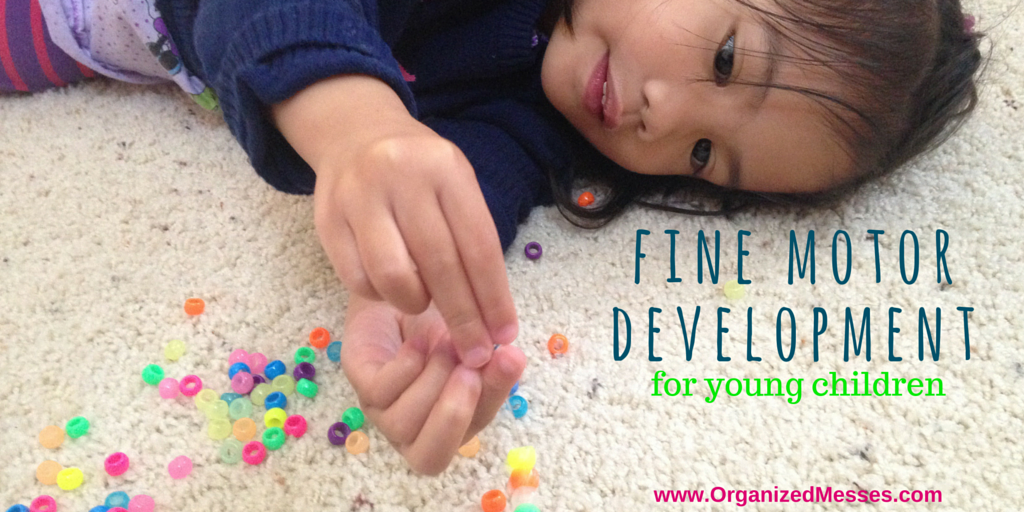Early education curriculum promotes the development of the whole child. Part of the whole child is fine motor skills (fingers and hands). This is important because strong fingers can be the foundation for strong writing, and confidence in learning.
I have worked with children in the education setting for over ten years. There can be limited confidence in writing because lack of practice in activities that encouraged the development of fine motor skills. Fine motor development can be an aspect of a child we easily overlook. Intentional development can help children learn to: tie their shoes, eat with utensils, write more confidently and clearly, draw, button and zip their clothes, and be more independent with self care.
Here are some ways to promote fine motor development:
- Allow toddlers to eat with their fingers: This is something that may have a cultural component. Many parents feed their children until they are four or five years old. Allowing young children to use their fingers with the "pincher grasp" can help strengthen the finger muscles.
- Individual Self Care (taking clothes off/on, brushing teeth, combing hair, etc.): This is something that will take time and patience. Young children are learning how to care for themselves and help around the house. This can be messy, and it is a learning experience. Slowly giving children more autonomy to care for themselves, even if it's not perfect or takes more time build confidence for a task in the future. If we rush to put their clothes on (all the time), it's difficult to learn how to do it when we ask them to.
- Drawing and coloring: It may seem like kiddos aren't learning, but making art is an essential part of developing fine motor skills. Children get to practice holding crayons and making lines on paper. It doesn't have to be perfect, and children can feel accomplished for making something.
- Play doh or goop: Sensory activities can help strengthen fingers with some feedback. The activity can calm a child, while improving fine motor skills.
- Zippers and Buttons: Young children love to help! Asking them to help with zippers and buttoning your clothes can help them feel useful and indirectly develop finger strength.
- Arts & Crafts: With your supervision, children can use their fingers to pick up beads, coins, and other small objects and string them along a thread, count them, or place them in jars.
- Tongs of eye droppers: Squeezing and holding onto objects can help improve hand resistance and patience in children.
- Bubble wrap: When you receive mail, popping bubble wrap can be a fun and exciting way to develop fine motor skills. It will most likely lead to lots of giggles as well!
- Turning pages & Tearing paper: Reading is essential! Asking little ones to turn the page can help improve confidence to read and fine motor skills. Tearing paper can be a great activity with junk mail, and papers that are going to be recycled. Kids can learn about helping the environment, while developing a necessary skill.
- Spray bottles and water guns: Summer is coming up, and water guns will very much help develop fine motor skills. Remind kids it's okay to take breaks if their fingers start to hurt. Sometimes little ones keep going and get blisters.
- BLOCKS: Larger blocks can help little ones start to develop fine motor skills by learning to take the blocks together and apart. Mega blocks are perfect for toddlers and preschoolers. When their fine motor skills are more developed, Legos are more appropriate.
Of course, supervision is important with these activities. Using these moments as bonding experiences can also help encourage the frequency of practicing.


